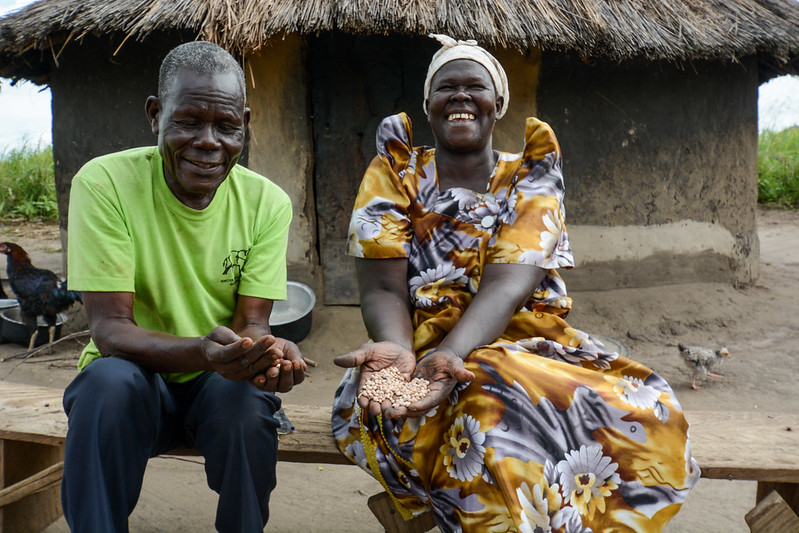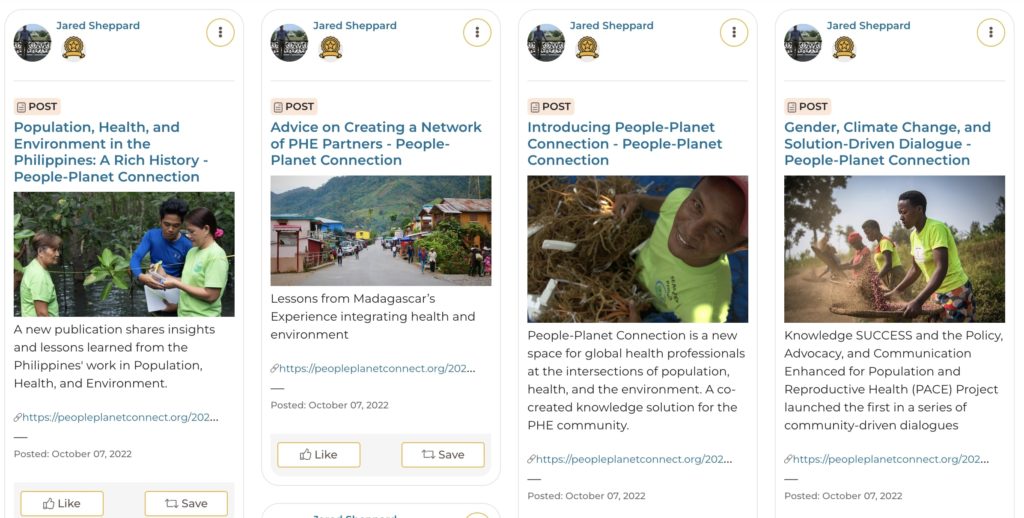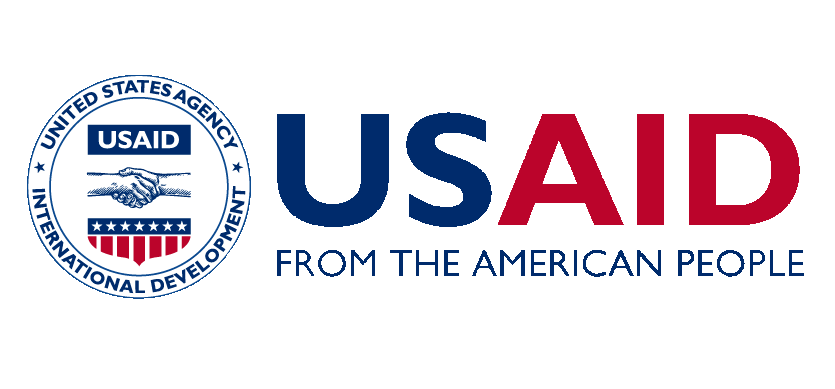
Reflexões sobre uma experiência prática em população, saúde, meio ambiente e desenvolvimento
6 de janeiro de 2023
Por: Jared Sheppard
Este post foi publicado originalmente no site Knowledge SUCCESS. Para ver a postagem original, clique em aqui.
When I started the Master of Public Health program at Johns Hopkins University, I thought I knew the ins and outs of my specialty. Through my academic coursework and past employment, I had focused on preventative medicine, community-based interventions, and the social dynamic of health systems. However, for my practical experience (a program requirement), I wanted to steer myself away from the ideologies I had already studied and follow a different path in order to build my competency across the dynamic field that is public health.
In my research, I came across an internship opportunity with the Knowledge SUCCESS project at the Johns Hopkins Center for Communication Programs (CCP). After learning that I was selected as the knowledge management and communications intern, I was nervous. The magnitude of working in a completely new space dawned on me, and I started to question if this was the right decision. Well, fast forward a few months, and I am so thankful that I took this route. Here’s why…
The basis of my practicum experience was centered on Population, Health, Environment, and Development (PHE/PED). While I was aware of the terminology, the field was new to me. During my undergraduate studies, I focused on a field known as One Health, which seeks to combine the fundamentals of people, animals, and the planet with hopes of curating interventions that benefit all three. I quickly made the connection between One Health and PHE/PED, which was the insight I needed to jumpstart my active role with CCP and Knowledge SUCCESS.

As part of the team, my job involved managing the People-Planet Connection Twitter account (@globalphed), creating monthly newsletters to share current events, opportunities, and resources developed by partner organizations, and drafting blog posts like this one! Engaging in these tasks allowed me to explore the interconnectivity that the PHE/PED discipline offers. In my New York City apartment, I was able to connect with international organizations virtually—from Africa to Asia—and observe the newest PHE/PED trends, innovations, and solutions . Reflecting on collaborative discussions and global meetings like COP27 was one of the highlights of my time with Knowledge SUCCESS. I’ve learned about the importance of community engagement, creative ways to use limited resources to build interventions, and the need to increase and spread funding in under-reached areas.
As another of my responsibilities, I maintained the People-Planet Connection FP insight collection. FP insight is a Knowledge SUCCESS platform that allows members to post and curate family planning resources. Through our collection, our readers and partners can keep up-to-date with active PHE/PED projects, resources, and innovations . The website is very convenient and allows our team to connect with associated personnel in the PHE/PED world to advance the notion and importance of what we and other organizations are doing.

The last and really formative experience that I want to share was my participation in an interview with one of our Campeões da Conexão Pessoas-Planetas. Jostas Mwebembezi is the founder and executive director of the Rwenzori Center for Research and Advocacy in Uganda. I transcribed and summarized his conversation with my colleague in order to shape it into a story. While it may seem like this experience was quite ordinary, its impact on me was far from it. The opportunity to hear first-hand about a PHE/PED leader’s role and his current achievements was so inspiring and eye-opening. The interview gave me a glance into the importance of community involvement and what it can accomplish in this field.
While I cannot say that I am anywhere near an expert in this realm of public health, I can say that these quickly-moving months have been filled with years of knowledge. Without the support of my preceptors Sophie Weiner and Elizabeth (Liz) Tully, I would not have been able to explore this unfamiliar field and feel confident in my goals moving forward. No matter where my career takes me, I will be able to apply the learnings and skills I gained through this practical experience in PHE/PED.




